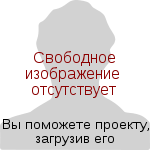- Norman Pirie
-
Norman Pirie 
Norman PirieBorn 1 July 1907 Died 29 March 1997 Nationality England Fields virology Institutions Rothamsted Experimental Station Alma mater Cambridge University Known for crystallization of tobacco mosaic virus Notable awards Copley Medal in 1971 Norman Wingate (Bill) Pirie FRS[1] (1 July 1907 - 29 March 1997)-was a British biochemist and virologist who, along with Frederick Bawden, discovered that a virus can be crystallized by isolating tobacco mosaic virus in 1936. This was an important milestone in understanding DNA and RNA. [2]
He taught at his alma mater, Cambridge University, from 1932 to 1940. He later joined the Rothamsted Experimental Station, becoming head of the biochemistry department in 1947.
He was elected a Fellow of the Royal Society in 1949, delivered its Leeuwenhoek Lecture in 1963 and won its Copley Medal in 1971.
References
- ^ Pierpoint, W. S. (1999). "Norman Wingate Pirie. 1 July 1907 -- 29 March 1997: Elected F.R.S. 1949". Biographical Memoirs of Fellows of the Royal Society 45: 397. doi:10.1098/rsbm.1999.0027.
- ^ Fowden, L.; Pierpoint, S. (1997). "Norman Pirie (1907-97)". Nature 387 (6633): 560. doi:10.1038/42378. PMID 9177338.
External links

This article about a British biochemist is a stub. You can help Wikipedia by expanding it.
